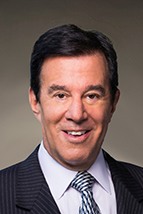
Employment Arbitration Agreements Must Be Fair
- by M. Laurie Murphy
It is common today for employers to ask employees to sign agreements to arbitrate any future disputes about work-related issues, because arbitration is often faster, less expensive, and more private than litigating such disputes in a court.

Measure ULA: The Tax Man Cometh – and Taketh
- by Robert C. Weiss
In the November 8 election, voters in the City of Los Angeles savaged the value of so-called “expensive” residential and commercial real estate by adopting Measure ULA (“ULA”). Dubbed the “Mansion Tax,” ULA imposes additional transfer taxes on the sale of residential and commercial properties in Los Angeles, effective April 1, 2023. A taxpayers' group is now challenging its legality in court.

Is Not Saying ‘No’ a Contract?
- by M. Laurie Murphy
When we shop in a store or online, it is common today for merchants to invite us to join “loyalty” programs that encourage us to become repeat customers by offering discounts or other incentives. Often these programs include “terms and conditions,” to which most of us pay little attention.

Year-End Tax Planning for 2022
- by Valensi Rose, PLC
As we approach the end of 2022, America is still recovering from the COVID-19 pandemic, and taxpayers must consider the multiple changes in tax rules that were intended to help the country cope with economic impacts of the disease. These rules, and other changes in the law, may impact your end-of-year planning.

Year-End Tax Planning for Individuals
- by Valensi Rose, PLC
With year-end approaching, it is time to start thinking about moves that may help lower your tax bill for this year and next. This year’s planning is more challenging than usual due to recent changes made by the Inflation Reduction Act of 2022 and the potential change in congressional balance of power resulting from the midterm elections.

Year-End Tax Planning for Businesses
- by Valensi Rose, PLC
With year-end approaching, it is time to start thinking about moves that may help lower your business’s taxes for this year and next. This year’s planning is more challenging than usual due to recent changes made by the Inflation Reduction Act of 2022 and the potential change in congressional balance of power resulting from the midterm elections.


